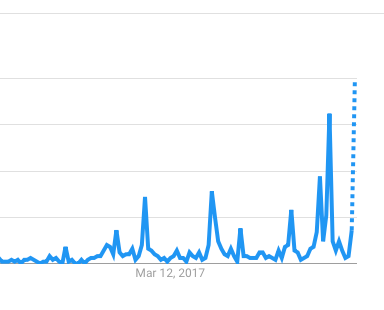For a vote that simply asked whether Britain should remain in the European Union or leave, the Brexit referendum appears to have been about rather a lot of different issues. It was about immigration, economic insecurity, a lack of investment in the Northeast/Wales/whichever-traditional-Labour-region-the-speaker-is-from, control over laws, sovereignty, trade. And now, according to Brexiteer cabinet ministers, it appears that the vote was about the customs union.
Ahead of today’s debate in the House of Commons about whether the UK should stay in the customs union (or “a customs union” or have a “customs arrangement”), cabinet ministers backing a hard Brexit insisted that any customs deal would be a “betrayal” of the referendum result.
“British people gave politicians clear instructions,” tweeted Sajid Javid last weekend. “Includes leaving the Customs Union.” His colleague Michael Gove chipped in his support. “Sajid is right,” he wrote. “The referendum vote was clear—we need to take back control of trade—that means leaving the protectionist customs union.”
But there’s just one small problem—they didn’t say this before the referendum. The Vote Leave website has a list of 58 “key speeches, interviews and op-eds” by its leading lights during the referendum campaign. The words “customs” is mentioned just twice, the phrase “customs union” makes just one appearance—a sentence in a 5,000-word summary outlining the reasons to vote leave.
Nor did any of the Leave campaign’s leading lights mention the customs union on Twitter. Boris Johnson has tweeted about the customs union three times—but all after the referendum. Douglas Carswell has managed 16 tweets about the issue since the vote, but not one during the campaign itself.
The issue simply wasn’t part of the campaign. Take a look at Google Trends for the phrase “customs union”: the first peak of interest is in July 2016, a month after the vote.

No mandate
Hardline Brexiteers need to understand that they have no mandate for their preferred version of Brexit. There is a mandate to leave; nothing more, nothing less. Politicians would be abiding by the vote if they opted for the softest of Brexits, a Norway-style option where the UK remains both in the customs union and the single market. Similarly, they would be abiding by the vote if they chose the most extreme version, walking away without a deal. The British people did not, as Javid claimed, give politicians clear instructions. We weren’t able to—the options were leave or remain.
That’s why it’s perfectly reasonable for MPs to help decide how Brexit will work in practice. It’s not a betrayal—it’s democracy. There is, of course, another option. Hardline Brexiteers could call for a fresh referendum, one which put their preferred shade of Brexit on the ballot paper. Then, at last, the British people really would be giving politicians clear instructions.












